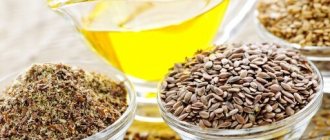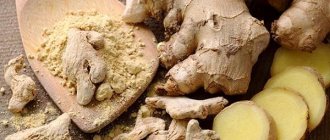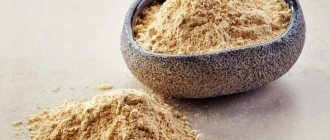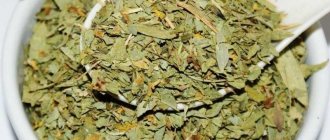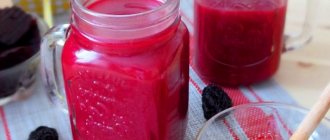Lately, coconut oil for the face has been touted as a natural moisturizer. Coconut oil is gentle enough to be used around sensitive areas such as under the eyes and on the lips.
Coconut oil has become an increasingly popular addition to food, but some believe the benefits may extend beyond food. In fact, some people use coconut oil to treat wrinkles.
Unfortunately, there is no cure for all wrinkles, and many remedies and over-the-counter products focus on reducing the appearance of wrinkles instead. Coconut oil may also offer such benefits, but research is currently limited.
Composition and properties of coconut oil
Coconut oil is a highly saturated oil that is traditionally obtained by extracting the oil from raw coconuts or dried coconut kernels.
It is solid at room temperature, but when heated it can soften or even melt.
It is often used in cooking or applied directly to the skin and hair.
Coconut oil is rich in medium-chain fatty acids, which are a form of saturated fat. In fact, these medium chain fatty acids make up about 65% of its total composition.
Fatty acids found in coconut oil include:
- Lauric acid: 49%
- Myristic acid: 18%
- Caprylic acid: 8%
- Palmitic acid: 8%
- Capric acid: 7%
- Oleic acid: 6%
- Linoleic acid: 2%
- Stearic acid: 2%
Although coconut oil is about 90% saturated fat, it also contains small amounts of mono and polyunsaturated fat. One tablespoon contains about 12 grams of saturated fat and 1 gram of unsaturated fat.
SUMMARY: Coconut oil is used in cooking, but can also be applied to the skin or hair. It is rich in saturated fat and medium chain fatty acids, especially lauric acid.
Positive properties
Coconut oil has many beneficial properties. They are especially valuable for the face:
- Soothes inflammation on the skin and has an antibacterial effect;
- Eliminates dryness and flaking;
- Restores the skin's water balance;
- Enriches with nutrients;
- Cleanses the skin surface from impurities and bacteria;
- The soft and high-quality composition can be used in any cosmetics;
In general, coconut oil can replace many products: toothpaste, cream, lotion, lip gloss, face mask. At least, if coconut oil does not replace cosmetic products, then it may definitely be present there.
Benefits of coconut oil for the face
Since coconut oil is a fat extracted from raw coconuts or dried coconut flakes, its emollient properties may make it beneficial for some skin types, such as dry or normal, when used as a night moisturizer.
Coconut oil contains nourishing fatty acids that help hydrate and protect the skin. These include lineolinic acid (vitamin F), which helps the skin retain moisture, and lauric acid, which has antibacterial properties. Consider other ways you can use coconut oil
If you have dry, flaky skin, using coconut oil instead of your regular moisturizer can soften and hydrate your skin, leaving it feeling fresh and soft when you wake up.
BENEFITS OF USING COCONUT OIL ON YOUR FACE
- Hydration. Coconut oil helps strengthen your skin's protective barrier layer, trapping moisture inside and keeping skin supple and hydrated.
- Reduce inflammation. Coconut oil has anti-inflammatory properties, making it beneficial for irritated skin.
- Increases collagen production. The lauric acid content in coconut oil has a beneficial effect on collagen production. Collagen helps the skin maintain firmness and elasticity. Helping the skin maintain and produce collagen can eliminate the formation of some fine lines and wrinkles.
- Lighten dark spots. According to estheticians, coconut oil can brighten the skin and may help reduce the appearance of dark spots or uneven skin tone. Adding lemon juice can enhance this effect.
Harm of coconut oil for the face
Using coconut oil as a nighttime treatment may not be right for everyone. Information does not confirm its effectiveness for oily or problematic facial skin.
Coconut oil is comedogenic, which means it can clog your pores. While some people find that coconut oil helps clear up acne from their face, leaving their skin brighter and softer, others find coconut oil too heavy to use as an overnight treatment.
Because coconut oil can clog pores, it may contribute to acne in some people. If you have oily skin, coconut oil may cause blackheads, pimples, or white spots if left on overnight.
If you are allergic to coconuts, you should not use coconut oil on your face. Some people who are allergic to walnuts or hazelnuts may also have an allergic sensitivity to coconut oil and should not use it.
User reviews
I have a combination skin type, so I don’t suffer from dryness. But in the winter, I use coconut milk, because as a result of temperature changes, the skin on my face begins to peel off. Using this product two to three times a week completely got rid of dryness. I recommend to everyone.
Irina, 25 years old.
Due to my duty, I constantly have problems with burns, especially burns to the face - I am a welder. A friend brought coconut oil from a business trip. He suggested trying it. Now I constantly lubricate minor burns on my face with coconut oil. The result is not long in coming, within a week everything goes away.
Alexey, 35 years old.
My friend and I really love to get together and have beauty evenings. Based on numerous recommendations, we tried several coconut oil masks. The effect is remarkable - the skin has become soft and elastic, the number of fine wrinkles has decreased. We are pleased with the result.
Maria, 51 years old.
Using coconut oil on the face
Use coconut oil on your face just as you would use any night cream.
Proper Use of Coconut Oil:
- Liquen one tablespoon of coconut oil by gently rubbing it between your palms. The liquefied oil will have a silky, light texture.
- Smooth it onto your face and neck. You can also use coconut oil on your chest and other dry areas of your body.
- Gently remove any thick residue using a soft cloth. Do not use cotton balls as they will stick to the oil on your face
- Leave a light layer of coconut oil on your skin overnight
- Avoid getting coconut oil in your eyes as it may make your vision temporarily blurry.
- Just follow these same steps twice. Use once to gently remove makeup and once to leave a light coverage on your skin.
Some people choose to use coconut oil as an occasional or weekly emollient at night. If your skin is oily or combination, then you may want to experiment with using coconut oil as a treatment for spots around your eyes or on dry patches of skin.
Cosmetologists' opinion
Cosmetologists around the world today are using coconut oil. It is often used in spas for life-giving wraps, relaxing massages and masks for the face, body and hair. In beauty salons, gentle scrubs and restorative balms are prepared using coconut extract.
The product is safe and can be used in almost any product:
- For hair, eyelashes, eyebrows and men's beard.
- For the whole body.
- For the care of delicate areas and rough skin on the heels and elbows.
- For the skin of the face and neck, including in lip balms and eye creams.
- To strengthen nails.
Now, not only Thai spas are saturated with coconut aromas - the healing oil has spread all over the world. Women increasingly prefer to prepare homemade cosmetics based on organic oils and extracts on their own - without preservatives, dyes and other harmful impurities, taking into account the individual needs of their skin.
How to use coconut oil for face at home?
When choosing the type of oil to apply to your face, look for organic coconut oils that are labeled as unrefined and pure. Researchers have used this type in their studies, and these types may provide the greatest benefit to the skin.
There are three main types of coconut oil:
- unrefined,
- refined
- liquid.
Liquid coconut oils are used primarily for cooking. The quality of commercially prepared coconut oils varies greatly. Some oils are refined using a chemical process. They can be harsh on the skin and may contain fewer benefits.
Unrefined coconut oil, which is made by pressing the edible meat of the coconut and usually contains no added chemicals, is the best for skin care. A 2011 analysis of coconut oils produced by different methods found that this type contains more fatty acids and compounds that are beneficial to the skin.
Most high quality coconut oils are solid when stored below 25 degrees. Solid coconut oil liquefies when heated.
Try adding essential oils to coconut oil that have nourishing properties for the skin.
Two types of product: refined and unrefined
There are two types of coconut oil: refined and unrefined. It all depends on the method of obtaining this product from coconut pulp, or rather on further processing.
The beginning of extracting coconut oil is the same:
- The white pulp of the nut is extracted from the hard shell;
- The coconut kernel is crushed;
- Then this pulp is subjected to heat treatment, namely dried to a certain state;
- Under high pressure, using a press, the oil itself is obtained from the finished raw materials.
This method is called cold pressing. The result is a thick yellow substance. The smell of the viscous consistency is very concentrated. As the temperature decreases, the oil gradually hardens and, as a result, becomes similar to lipstick.
This unrefined coconut oil contains many nutrients that benefit the skin. This substance undergoes purification, but only mechanically, that is, it is filtered through gauze or a filter.
Refined coconut oil goes through several stages of purification and its characteristics are qualitatively different from unrefined coconut oil. It is believed that such a purified product has less beneficial qualities.
Distinctive is not only the smell, color and consistency, but also the shelf life. In unrefined it is much less, since it is the most natural.
But not everyone can use unrefined product and not in all cases:
- During pregnancy, it is better to use refined;
- Young children should not use unrefined;
- For sensitive skin or significant inflammation;
- If you have allergic reactions or intolerance to certain components, it is not recommended to use the coconut product.
Depending on the desired effect, any type can be used. But it is important to take into account the peculiarities of using the coconut product.
The use of coconut oil in cosmetology
Research has been done on coconut oil for its effects on the skin.
Research has confirmed the anti-wrinkle benefits of coconut oil. Coconut oil may help treat dermatitis better than other oils. In addition to treating dryness associated with dermatitis, other studies have looked at the possible wound-healing properties of coconut oil. One such study of coconut oil in rats found faster wound healing times. Researchers have linked this to the increased collagen content of coconut oil components. Collagen itself is important in creating skin elasticity. In fact, this is what makes your skin firmer and wrinkle-free. Your skin loses collagen as you age, causing fine lines and wrinkles. In general, the problem with coconut oil is that it can be sold in cosmetic products or as stand-alone items without much regulation. In fact, the Food and Drug Administration does not consider anti-wrinkle products to be drugs. Therefore, they do not require proof of research and effectiveness before such products are sold in the market. Most over-the-counter products offer only “modest” benefits. You can experience similar results with coconut oil.
Where to buy?
In order for coconut oil to be beneficial and not harmful to beauty, you should purchase a quality product. To do this, it is better to contact specialized stores.
When purchasing coconut oil, follow these guidelines:
- Check the composition and labeling on the package. The label must indicate that the product is free of foreign impurities;
- Feel the aroma. The smell should be characteristic of coconut or absent altogether. The predominance of other aromas indicates the use of fragrances;
- Rate the color. Coconut oil may be clear or yellow depending on its condition;
- Consider the packaging. It is better to choose a cosmetic product in transparent packaging. This will make it possible to review and evaluate the condition of the contents immediately.
You can also make your own coconut oil. This will not be difficult to do, and the savings will be significant.
Low-temperature method for preparing cosmetics at home:
- The coconut flesh is cut into small pieces and dried, for example, using a desiccant. This will take about a day. An alternative is to use coconut flakes;
- The flakes are placed in a juicer to separate the coconut oil from the fiber.
- It will not be possible to completely isolate the required product from the flakes the first time. It is recommended to process the flakes again through a juicer.
- The resulting liquid is poured into a glass container and placed in a warm place for a day. The impurities will sink to the bottom and the coconut oil will rise to the top.
- The thickened oil is transferred with a spoon to another storage container. The product is ready to use.
This method of obtaining coconut pulp is gentle and retains more beneficial properties.
Coconut oil for the face: reviews of cosmetologists on use
What type of coconut oil is best?
Coconut oil can be produced through dry or wet processing.
Dry processing involves drying coconut meat to create kernels, pressing them to extract the oil, then bleaching and deodorizing them.
In wet processing, coconut oil is extracted from raw coconut meat—instead of dried—to create virgin coconut oil. This helps preserve the coconut flavor and results in a lower smoke point.
Research suggests that pure coconut oil may be more effective than refined coconut oil in preventing oxidation and neutralizing free radicals, which can damage cells and lead to inflammation and disease.
SUMMARY: Pure coconut oil may be a better choice than refined coconut oil, given that it provides additional health benefits such as improved antioxidant status.
Acne treatment in cosmetology
While some people think that coconut oil clogs pores, significant research shows that it may actually help treat acne.
The inflammatory condition and many of the medications used to treat it work by reducing inflammation.
Since coconut oil and its components can help reduce inflammation in the body, it can also help treat acne.
Additionally, the antibacterial properties of the medium chain fatty acids in coconut oil may also help reduce acne.
Numerous studies have shown that lauric acid, which makes up nearly half of the fatty acids in coconut oil, has been shown to kill a strain of bacteria associated with acne.
In fact, test tube and animal studies have shown that lauric acid is more effective than benzoyl peroxide at preventing the growth of acne-causing bacteria.
Along with lauric acid, caproic acid has anti-inflammatory and antibacterial properties.
To get the best results, coconut oil should be applied directly to the skin where acne occurs.
Skin moisturizing in cosmetology
A two-week study found that coconut oil significantly improved skin hydration and was as effective as mineral oil.
It has also been shown to help treat eczema, a skin condition characterized by scaly, itchy rashes.
A study comparing the effects of olive oil and coconut oil in 52 adults with eczema found that using coconut oil helped reduce dryness and also helped treat eczema.
Another study found similar results, showing that coconut oil resulted in a 68% reduction in eczema severity, making it significantly more effective than mineral oil in treating eczema.
Coconut oil can help maintain its function as a barrier against bacteria, promote scar healing, and maintain overall skin integrity.
Does coconut oil help with wrinkles?
To treat wrinkles, you should use coconut oil in the form of a serum. It can be applied to cleansed facial skin up to twice a day. Use a small amount and apply evenly to skin. Wait for the oil to dry before applying any other products.
If you are using a product with coconut oil in it, simply follow the package instructions. Some over-the-counter moisturizers contain coconut oil.
Other coconut oil infused products include:
- spot treatments
- serum
- serum-masks
- under eye cream
You will need to use any product consistently for several weeks before you start to see any results.
You should also adopt other best practices to protect your skin, in addition to any anti-wrinkle treatments. Use moisturizer twice a day. Ideally, you should apply this after coconut oil but before any makeup. Sunscreen is also important to protect your skin from sun damage, which is another cause of premature aging. You can look for a daily moisturizer with a minimum SPF of 15, or wear sunscreen on top of your moisturizer.
Contraindications and possible harm
Coconut oil can be harmful only if individual intolerance is neglected and the dosage of the extract in the recipe is increased. In these cases, the following side effects may occur:
- rash,
- itching,
- black dots,
- acne,
- greasy shine,
- eyelash loss,
- eyebrow thinning.
The only contraindication to the use of coconut pulp is individual intolerance to the product. Do a little test: apply a small amount of product to the inside of your elbow or wrist. If after 24 hours an allergic reaction (rash, redness, itching) does not occur, feel free to use the product.
It should also be noted that coconut oil tends to clog facial pores. That is why it is not recommended to use the product in the care of oily and combination skin. However, this is only relevant for products obtained by cold pressing. Refined oil is most likely suitable even for very problematic skin.
Face masks with coconut oil: recipes
Mask with coconut oil and honey
You will need
- ¼ cup coconut oil
- 1 tbsp. l. raw honey
- ¼ cup shea butter
Recipe
- Take a bowl and add shea butter to coconut oil. Mix them.
- Remove from heat and add raw honey.
- Mix well and apply all over your face.
- Keep it on for at least half an hour and then wash it off.
How to use
If you have dry skin, use this once a day.
Coconut oil, honey and shea butter hydrate skin and unclog pores. Coconut oil and honey have antimicrobial and antifungal properties that eliminate germs and keep your skin healthy.
Mask with coconut oil and tea tree oil
You will need
- 1 tbsp. l. coconut oil
- 2-3 drops tea tree oil
Recipe
- Take a bowl and add both oils to it. Mix them well.
- Store the mixture in a bottle.
- Apply 3-4 drops of this oil mask to your face before going to bed
- Let the mask stay on all night.
How to use
Every day (for sensitive and combination skin) or every other day (for oily skin)
Both coconut oil and tea tree oil have antiseptic and healing properties. When you sleep, your body works and the mask protects epithelial cells and other systems. And this oil mask helps further in that process, giving you glowing skin the next day.
Mask with coconut oil and turmeric
You will need
- 3 tbsp. l. coconut oil (melted)
- ½ teaspoon turmeric powder
- ½ teaspoon lemon juice
- 1 tbsp. l. honey
Recipe
- Take a small bowl and mix all the ingredients.
- Cleanse your face and apply a face mask.
- Keep it on for 15-20 minutes, then rinse.
How to use
2-3 times a week.
Turmeric has antiseptic properties that help get rid of dark spots and blemishes, leaving your skin clear and bright. Lemon's astringent properties keep your face flawless. Honey and coconut oil keep your face hydrated, nourished and glowing. You can feel the difference with regular use.
Mask with coconut oil and baking soda
You will need
- 1 tbsp. l. coconut oil
- 1 teaspoon baking soda
Recipe
- Mix baking soda and oil to form a paste.
- Apply to skin, focus on affected area.
- Massage gently with your fingers for 10 minutes.
- Wash your face.
How to use
Twice a week.
This face mask works as a cleanser. It removes dirt and dead skin cells from the pores and brightens your face.
Mask with coconut oil and coffee
You will need
- 1 teaspoon coconut oil
- 1 teaspoon coffee powder
Recipe
- Mix both the ingredients and make a paste.
- Apply to face.
- Gently massage with your fingers in a circular motion for at least 10-15 minutes.
- Rinse off with warm water.
How to use
Twice a week.
Coffee and coconut oil are rich in antioxidants, which protect your skin from harmful free radicals. Plus, they boost collagen production and make your skin glow!
Rating of the best cosmetic coconut oils for the face
100% coconut oil (extra virgin) Aroy-D
Coconut oil is rich in lauric acid and medium chain triglycerides (MCFA). Lauric acid is an acid that has the function of converting into monolaurin when it enters the human body. Monolaurin is a powerful component that strengthens the human immune system, it is an antibacterial, antiviral and antiprotozoal monoglyceride used to fight viruses in the lipid envelope.
COCONUT OIL FOR SKIN AND HAIR VITA COCO
Multifunctional 100% natural cold pressed coconut oil.
COCONUT OIL FOR FACE WITH JOJOBA OIL “HYDRATION AND NOURISHMENT”
Coconut oil with jojoba oil for the face has a comprehensive caring effect on skin of any type: gently moisturizes and nourishes dry, dehydrated epidermis, eliminates flaking, improves the condition of rough areas, prevents inflammation, soothes, which makes it indispensable in the care of skin prone to irritation , reduces redness, normalizes sebum production, has pronounced anti-aging properties, promotes rapid cell regeneration and activates collagen production, thereby maintaining skin firmness and elasticity, and also protects against photoaging and improves complexion.
Mixit Coco Organic Oil for face and body
Cold-pressed coconut oil Mixit Coco Organic Oil Organic virgin coconut oil with a unique vitamin complex. How it works: vitamins E and F slow down the aging process, smooth out existing wrinkles
Unrefined coconut oil ↑
It is this oil that is valuable and healthy. It is not processed and remains in its natural form. This product has a characteristic coconut smell, the oil is fattier and more viscous.
The best unrefined coconut oil is produced by cold pressing. This product retains all the active ingredients and provides significant benefits for the skin of the face and the whole body. It is useful to eat for some diseases, but this is a separate topic.
The shelf life of a natural, unrefined product is limited - only 1 year, provided that it is properly stored.
Application in cosmetology ↑
For cosmetic purposes, it is recommended to use exclusively unrefined oil if you want to get a clear and long-lasting effect. It costs more, but still remains a budget-friendly personal care product.



